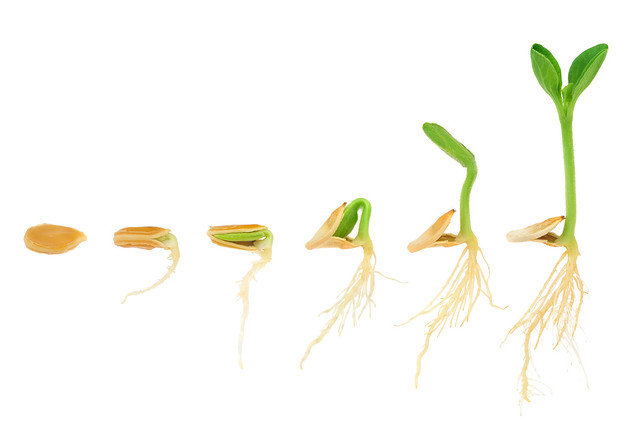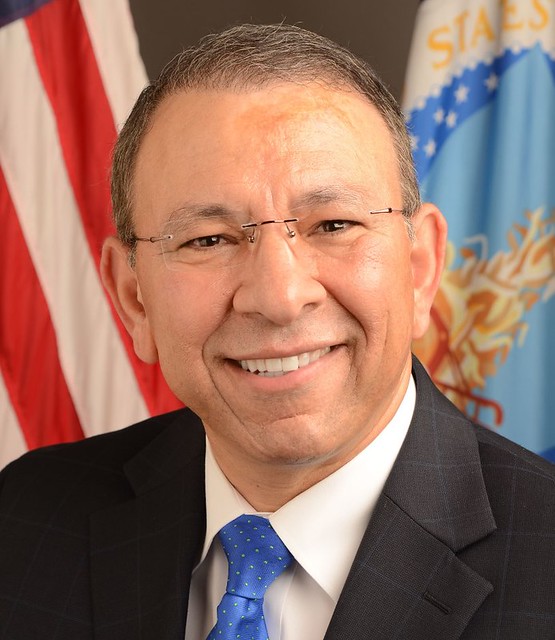
Seeds for planting represent tremendous value to the U.S. agricultural economy. In 2016, the United States exported $1.67 billion worth of these seeds and imported $997 million worth of them. This month, the American Seed Trade Association (ASTA) recognized USDA’s efforts to make the international movement of seeds safer and more efficient. The association presented its 2018 Distinguished Service Award to Osama El-Lissy, Deputy Administrator of USDA’s Plant Protection and Quarantine program.
“I was deeply humbled to receive this award, and I accepted it on behalf of so many talented USDA colleagues,” said El-Lissy. “I am also grateful for the partnership that USDA has forged with this industry. We have benefited tremendously from its innovation, creativity and global perspective.”
ASTA turned to USDA because seeds can be a complex global commodity. Thousands of seed varieties move in global trade through multiple countries in increasing volumes. To facilitate the safe trade of seeds, it is important to ensure consistent plant health requirements worldwide. ASTA and USDA collaborated to address this challenge.
For example, seed companies may locate breeding programs in several countries, and they may distribute seeds from those countries to many other countries. In addition, seeds produced in one country might be exported to a second country for processing and a third country for packaging. Then they may be re-exported to many other destinations—including back to the country of origin. To complicate matters, at the time of seed production the destination countries and their import requirements may not even be known.
“USDA is in a unique position to help,” El-Lissy explained. “We sit at the table of the International Plant Protection Convention. This organization has 183 countries that establish science-based international standards for moving plants and plant products around the globe without spreading invasive pests and diseases. At industry’s request and with their technical support, we made seed movement a priority issue, and many countries joined our effort.”
The result: a new international standard that helps countries to identify, assess, and manage the pest risk associated with the global movement of seeds. Its guidance promotes consistency in how countries inspect, sample, test, and certify seeds for export and re-export. Regionally, the North American Plant Protection Organization, which includes the United States, Canada, and Mexico, plans to promote the standard throughout the Western Hemisphere by conducting a multi-nation workshop early next year.
Now USDA is making that international standard operational with its Regulatory Framework for Seed Health (ReFreSH). “We collaborated with the seed industry, state and federal officials, academia and others to develop ReFreSH,” El-Lissy said. “It is leveraging industry best practices for managing pest risk to make international seed movement safer. Its goal is to promote the worldwide use of consistent and equivalent requirements for international seed movement.”
USDA is making significant progress in 2018. It is developing detailed ReFreSH requirements, drafting a ReFreSH accreditation manual, and working toward implementing a ReFreSH pilot. USDA experts are also traveling the world, informing other countries and their seed industries about the initiative and garnering their support.
“ASTA is very fortunate to have such a forward-thinking partnership with USDA, due in very large part to Osama’s leadership,” said Ric Dunkle, ASTA’s Senior Director of Seed Health and Trade. “Our open and positive communication with USDA is fostering new ideas and innovations that are paying dividends for not only the seed industry but also for USDA in providing better phytosanitary security to the United States and other trading partners.”

